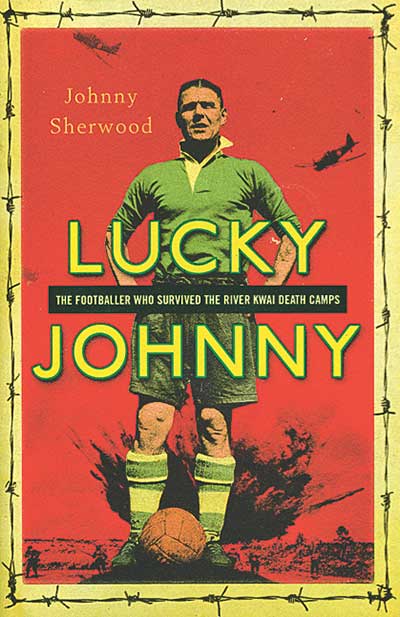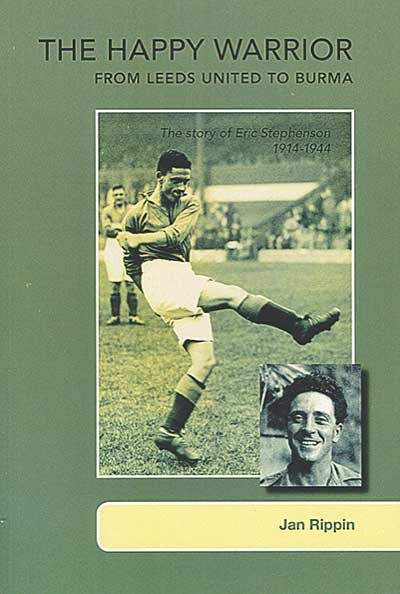 Lucky Johnny
Lucky Johnny
The footballer who survived the River
Kwai death camps
by Johnny Sherwood
Hodder & Stoughton, £20
The Happy Warrior
From Leeds United
to Burma
by Jan Rippin
Tricorn Books £9.50
Buy this book
Reviewed by Roger Titford
From WSC 333 November 2014
There is a recent surge of interest in British footballers at war which may have deep and complex roots. These two titles appear coincidentally at the same time about two men whose war and lives bore remarkable similarities. Only one survived to tell his tale.
Johnny Sherwood (Lucky Johnny) was an embryonic professional at Reading, came home to a curtailed career and wrote a memoir, partly for therapeutic reasons, in later life. The manuscript was discovered last year by his grandson. Eric Stephenson (The Happy Warrior) was an established First Division player at Leeds United with two caps and was a member of the last England touring party before the war. His daughter Jan Rippin was just three when she last saw him and his death left an immense void in family life. Her loving tribute also acts as a means of easing pain.
A modern football audience needs to be alert to the difference between war books about men who happened to be footballers, rather than milkmen or lathe operators, and books about footballers who fought. These titles tread that line rather awkwardly at times because they are constructed more from the war perspective and their football content is a little sketchy.
Rippin’s account of her father is plainly written but nonetheless emotional, particularly in the latter half which deals with his war and death. She creates a picture of the kind of man we no longer seem to have: working class, inspired by books, chapel and political discussion and now memorialised in stained glass. Every last drop of available personal detail is squeezed out of the Leeds match reports but little else is conveyed about his life as a footballer. He was posted to Burma in 1942, rose to the rank of major and fought there until his death in action in September 1944.
In the very same week Sherwood came closest to death, being torpedoed and afloat in the South China Sea for 17 hours. Having been captured just days after landing in Singapore in 1942 he spent most of the next two years working as slave labour for the Japanese building the “railway of death” by the River Kwai. His fitness and status as a footballer enabled him to survive several dangerous moments and his memoir is utterly harrowing, with comrades dying horribly on every other page.
There are some footballing nuggets here and there, notably actually playing matches against the guards who treated them so badly and cautiously not winning too well. This example of football as a bridge between men, more remarkable than the Christmas Day truce match of 1914, would benefit, as would other incidents, from being highlighted in an accompanying commentary. Sherwood survived to briefly pick up his League career with Aldershot but the trauma from having played his part in what literary folk called “the greater game” stayed with him until his death in 1985.